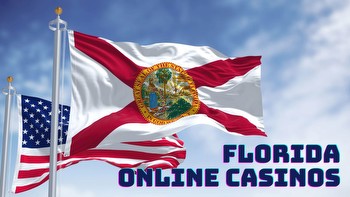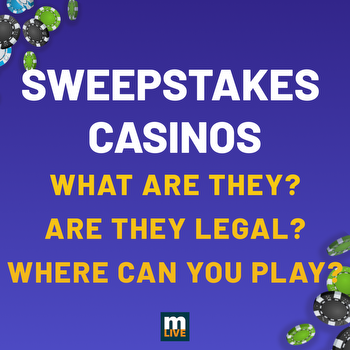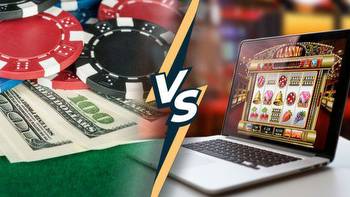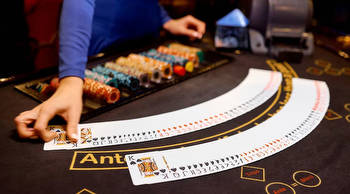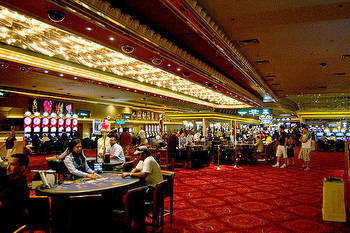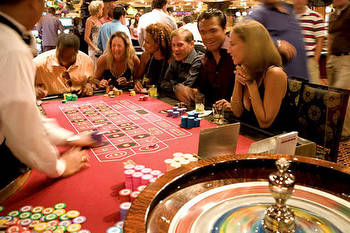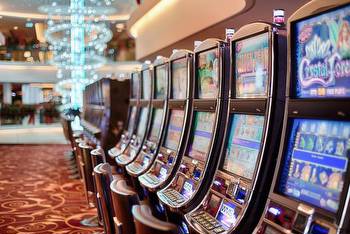Are Sweepstakes Casinos Legit? Who Governs Them?

In the US, sweepstakes casinos have become a popular legal option for online gamblers in recent years.
A type of social casino, sweepstakes casinos typically offer slots and popular casino games like blackjack and roulette — but they operate differently from traditional real-money online casinos in that they do not technically offer gambling for real money under the letter of the law.
Instead, players purchase what are considered play-money tokens, and as a gift, they receive a second type of token that eventually can be redeemed for cash prizes. This second type of token is commonly called “Sweeps Coins,” though the terminology differs depending on the platform. These Sweeps Coins (or SC) are then used to play casino-style games where players can win more SC and eventually redeem them for cash prizes.
It is important to note that Sweeps Coins can never be purchased directly. There are multiple ways they can be obtained for free (including by purchasing the site’s play-money tokens), and they can be accumulated by playing SC casino games, but technically, they can never be purchased for real money.
Since people technically can’t gamble with real money at sweepstakes casinos, they are not regulated as gambling. Consequently, they are fully legal and available in most US states.
Although sweepstakes casinos are an exciting alternative to traditional real money online casinos and are available in more jurisdictions, they still must adhere to specific federal and state laws.
Understanding the Terminology
For any discussion about sweeps casinos, it’s essential to understand some legal terminology, especially what constitutes a lottery.
According to guidance from the American Bar Association (ABA), a lottery is defined as a promotion that has three components:
- Chance — The competition must be based on chance and not skill
- Value — The prizes have value
- Consideration — As a means of entry, a participant pays money or buys a product or service
In order to conduct a legal sweepstakes, ABA said a sponsor must eliminate at least one of the three aforementioned components. Most sweepstakes operators choose to provide a means of free entry, which negates the consideration element.
Federal Oversight by FTC
At the federal level, sweepstakes casinos fall under the oversight of the Federal Trade Commission (FTC), an independent agency.
According to guidance from the FTC to consumers, federal law requires sweepstakes casinos be free to enter and that no purchase is necessary to win. Sweepstakes casinos are also required to include certain information in their terms and conditions — such as the overall odds of winning, what the prizes are and how much they’re worth, and how players would redeem a prize.
Sweepstakes casinos don’t fall under the purview of the Unlawful Internet Gambling Enforcement Act (UIGEA) since players aren’t gambling with real money.
While sweepstakes entries (i the form of Sweeps Coins) can be obtained for free with a purchase, the FTC requires operators to provide a way to enter with no purchase required, often referred to as an alternate method of entry (AMOE). A typical AMOE for sweepstakes involves sending a request through the mail, which then must comply with the rules and regulations of the US Postal Service. Other ways to get Sweeps Coin include logging into your account, subscribing to text messages from the operator, and various missions that have become popular with online games.
States Also Have Requirements
Most states regulate sweepstakes casinos to varying degrees, but they are prohibited in some states. Restrictions enacted in Idaho and Washington state are so cumbersome that sweepstakes casinos do not operate there.
Other states typically allow sweepstakes casinos to operate within their borders as long as they comply with the aforementioned federal rules. Many states also have laws that differentiate between lotteries and sweepstakes casinos.
In addition to posting their terms and conditions, all sweepstakes casinos provide players with a list of jurisdictions where they are permitted to operate.
State attorneys general (AG) have some oversight over sweepstakes casinos. AGs can hold sweepstakes casinos responsible for following a state’s consumer protection laws, advertising standards, privacy laws, and age restrictions. Deceptive advertising practices by sweepstakes casinos can spur legal action by an AG.
Last month, in a recent example of state enforcement, Michigan AG Dana Nessel ordered Golden Hearts Games to cease operations after it violated state law.
“When companies like Golden Hearts attempt to circumvent Michigan’s gaming laws, they create the false impression that their games are legal and safe for consumers,” Nessel said in a statement at the time.








